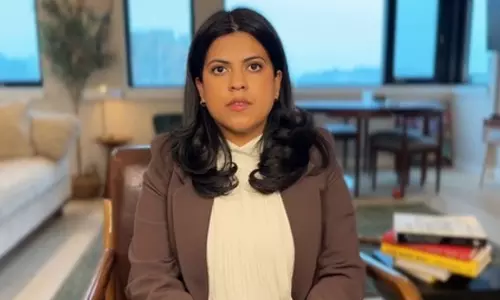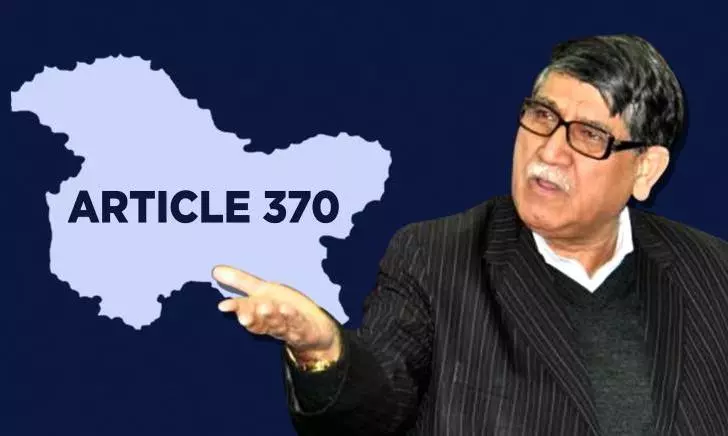
Is swearing allegiance to the Constitution mandatory to seek legal remedies?
text_fieldsMohammad Akbar Lone
New Delhi: The Supreme Court’s recent ruling directing the member of the Jammu & Kashmir National Conference party and an MP from Kashmir, Mohammad Akbar Lone, to file an affidavit affirming his allegiance to the Indian Constitution has been contested by legal luminaries who say there is no need to do so to access the courts to seek legal or constitutional remedies.
The Supreme Court's directive is rooted in an incident that occurred in the Jammu and Kashmir Legislative Assembly in 2018 when Lone was accused of chanting 'Pakistan zindabad' or 'long live Pakistan'.
Legal experts argue that Chief Justice DY Chandrachud, who acknowledged the Central government pleader's demand for Lone to swear allegiance to the Indian Constitution as a condition for dealing with the apex court in response to Lone's petition against the abrogation of Article 370, may set a dangerous precedent that could infringe on citizens' fundamental rights.
Solicitor General Tushar Mehta, who was representing the Union government, demanded that Lone submit an affidavit in which he would declare his allegiance to the Constitution and express his opposition to terrorism and secessionist activities by Pakistan in Jammu and Kashmir.
The directive was issued during a hearing involving Kashmiri MP Mohammad Akbar Lone, a petitioner challenging the abrogation of Article 370 and the revocation of Jammu and Kashmir's statehood in 2019.
Article 32 of the Indian Constitution allows individuals to seek the enforcement of fundamental rights, and it is this article that Lone invoked in his case.
However, legal experts and scholars have expressed their reservations about the Supreme Court's directive. They argue that there is no legal requirement for individuals to declare their allegiance to the Constitution in order to access the courts to seek legal or constitutional remedies.
The Supreme Court's decision to ask for such an affidavit has raised questions about its implications. They argue that even if an individual holds views that are contrary to the mainstream or even "anti-national," it should not impede their access to justice or their right to approach the Supreme Court under Article 32.
Anuj Bhuwania, a professor at the Jindal Global Law School who was quoted by Scroll.in emphasized that citizens are entitled to their rights irrespective of their views, no matter how objectionable those views may be to some.
He raised the example of illegal detention, stating that even individuals with "anti-national" views should not be denied protection by the courts.
It is argued that individuals should not be compelled to conform to a particular viewpoint or pledge allegiance to a specific ideology in order to access the justice system. This raises concerns about the potential erosion of democratic principles and the diversity of perspectives that should be protected within a democratic society.
Moreover, the directive may have implications not only for Indian citizens but also for foreigners who seek legal recourse in India. It has been pointed out that Article 32 grants this right to foreigners as well, who may have allegiances to the constitutions of their own nations.






















